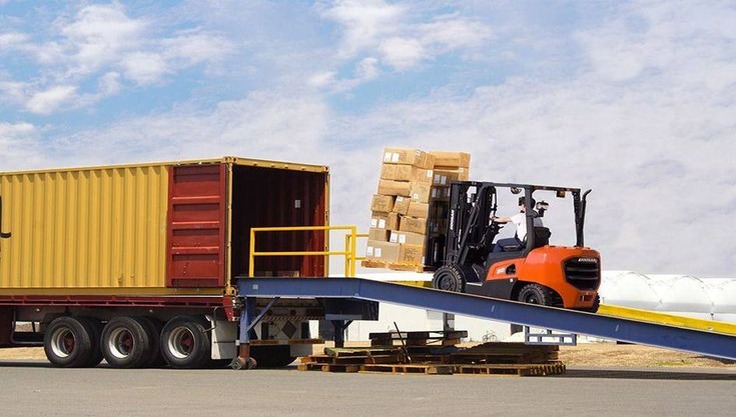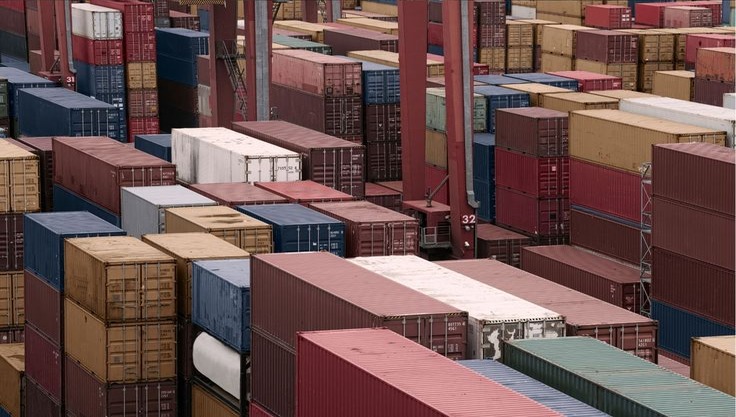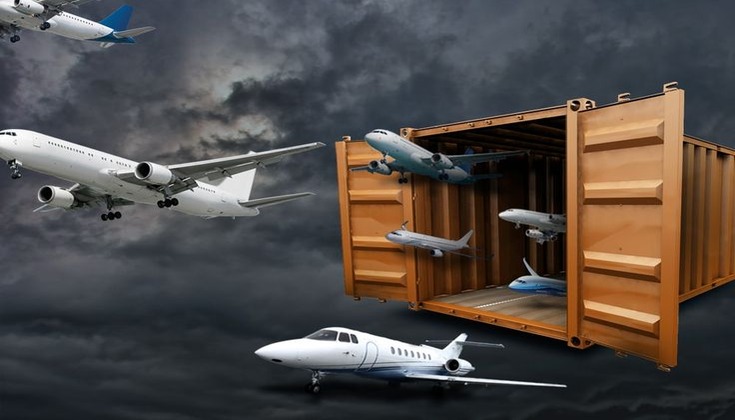Welcome to Express Global
Full Container Load (FCL) Shipping Services
Ship Suppliers and Ship Chandler Industry

Business Verticals
FCL Freight
FCL Freight (Full Container Load) is a shipping method where an entire shipping container is used for a single customer's goods, ensuring that the container is not shared with other shipments. This method is ideal for large shipments or high-value cargo that require dedicated space and maximum security during transit. FCL provides greater control over the shipping process, with consistent transit times, reduced handling risks, and faster delivery compared to LCL (Less Container Load) freight.

Welcome to Express Global
Full Container Load (FCL) is a shipping method used in international trade, where an entire container is allocated to a single shipper for transporting goods. This service is ideal for businesses with large volumes of cargo requiring exclusive use of the container.
FCL Advantages

Exclusive Use of the Container
The entire container is reserved for one shipper, eliminating the need to share space with others. Ensures privacy and control over cargo. Full Container Load (FCL) shipping is the exclusive use of the container by a single shipper. This key benefit contributes to enhanced efficiency, security, and flexibility in cargo transportation.

Lower Risk of Damage or Contamination
Cargo is not mixed with other shipments, reducing the chances of damage, contamination, or mishandling. Ideal for fragile, sensitive, or high-value goods. Full Container Load (FCL) shipping offers a significant advantage in reducing the risk of damage or contamination during the transportation process. Here's how FCL ensures better protection for your goods.

Simplified Documentation and Customs Clearance
As the shipment belongs to a single shipper, documentation and customs processes are often more straightforward. Full Container Load (FCL) shipping offers distinct advantages in the documentation and customs clearance process compared to shared container methods like LCL. Here's how FCL simplifies these aspects.

Compatibility with Multi-Modal Transport
FCL containers can be easily transported using different modes (sea, rail, road), offering flexibility in logistics planning.FCL containers are highly versatile and can seamlessly integrate into multi-modal transport systems, providing significant logistical advantages. Here’s a breakdown of how they can be transported across various modes.
High Upfront Costs for Small Shippers
Challenge: FCL requires booking an entire container, which may not be cost-effective for shippers with less-than-container volumes. Dynamic Cost Analysis: Freight systems can compare costs between FCL and alternative options, like LCL, helping shippers make informed decisions. Consolidation Networks: Advanced systems facilitate cargo pooling for small businesses to share FCL containers, optimizing space and reducing costs.
Container Utilization Efficiency
Challenge: Underutilizing container space increases per-unit shipping costs. Space Optimization Tools: Systems use algorithms to optimize the arrangement of goods, maximizing the use of container space. Load Simulation: Freight systems provide virtual loading simulations to plan efficient packing strategies.
Advantages of FCL service with Express Global

Faster Transit Times
Direct shipping without consolidation or deconsolidation reduces transit and handling time. Priority loading and unloading at ports.

Enhanced Security
Containers are sealed at the point of origin and remain sealed until delivery, reducing the risk of theft or tampering.

Flexibility in Container Options
Offers a variety of container types, such as standard, refrigerated, flat-rack, or open-top, to suit different cargo requirements.
Advantages of FCL service with Express Global

Digital Transformation of FCL Shipping
I Freight systems automate repetitive tasks such as documentation, booking, and invoicing, reducing errors and saving time. Digital platforms eliminate the need for physical paperwork, streamlining customs clearance and communication.

Smart Container Management
Internet of Things (IoT) technology allows real-time monitoring of container conditions such as temperature, humidity, and location. Freight systems use data analytics to predict and prevent potential container issues, minimizing delays and costs.

Enhanced Cargo Visibility
Advanced systems provide real-time tracking of shipments across sea, road, and rail, ensuring better control over transit. Artificial intelligence predicts disruptions like port congestion or weather delays, enabling proactive decision-making.

Sustainable FCL Shipping
Freight systems calculate the carbon footprint of shipments, helping businesses adopt eco-friendly practices. Recommends energy-efficient routes and modes of transport, such as rail over road or slow steaming for ships.
FAQs
FCL Freight refers to shipping an entire shipping container exclusively for a single customer’s goods, ensuring full control over the shipment.
Dedicated Space: No sharing with other shipments, ensuring privacy and security.
For large shipments where cargo volume fills a standard container (typically 20ft, 40ft, or 40ft High Cube containers).
High-value goods, perishable items, hazardous materials, or bulk shipments where space efficiency and security are critical.

.svg)